WARNING: This review contains SPOILERS!
JOKER is a film set in the 1980s, and yet its protagonist Arthur Fleck, who is played with indomitable skill by actor Joaquin Phoenix, is a commentary on the tortured modern man.
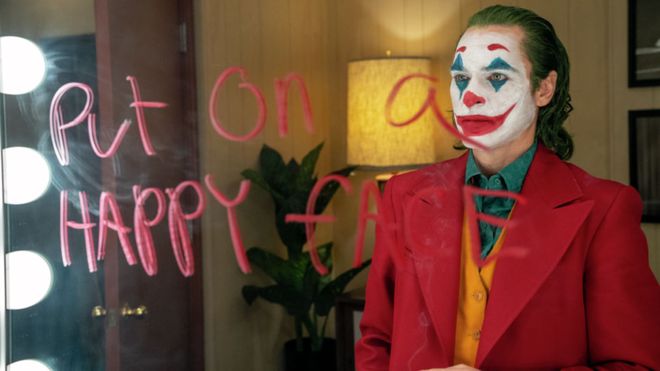
The number of young adults living with their parents has risen from 2.4 million to 3.4 million in 20 years. Three out of four Americans feel moderate to high levels of loneliness, with anxiety and depression also increasing exponentially. We are more connected to technology, but we haven’t felt more isolated and invisible than we do today. There is a longing for something greater than our mundane day to day existence. People are looking for purpose and belonging in a crazy world and are struggling to find either.
Arthur Fleck ticks all those boxes. He lives with his mother in an unloved city apartment complex and yearns to make the bigtime as a stand-up comedian. He has good intentions, however a persistent laugh, which we discover to be an unfortunate medical condition from an abusive childhood, earns him disdain rather than respect. Arthur is stuck in a daily grind of train travel towards a troublesome work environment, and finally a long walk home to check his still empty mailbox.
That mailbox represents Arthur’s soul. He wants his life filled with excitement, success and a female companion. Instead he is rail thin and receiving constant disappointment and abuse from a cruel public. Arthur knows he is troubled and battles to control his demons via regular appointments with a psychologist. He is taking seven different medications but that’s not enough - he wants the doses increased. Funding cuts derail all of those support systems, further sabotaging a wounded but well-intentioned man.
Arthur’s worldview drastically changes after he is assaulted by a group of teenagers while working as a sign holder. Returning to work, a fellow employee offers Arthur a gun to defend himself, which is something Arthur never considered doing. He nonetheless accepts the gift, and the gun soon becomes a burden, an asset and a transformational tool that follows him throughout the film. It causes Arthur to lose his job, but it also allows for his self-defence when he again becomes the victim of assault, this time on a late night train occupied by bullies from Wall Street.
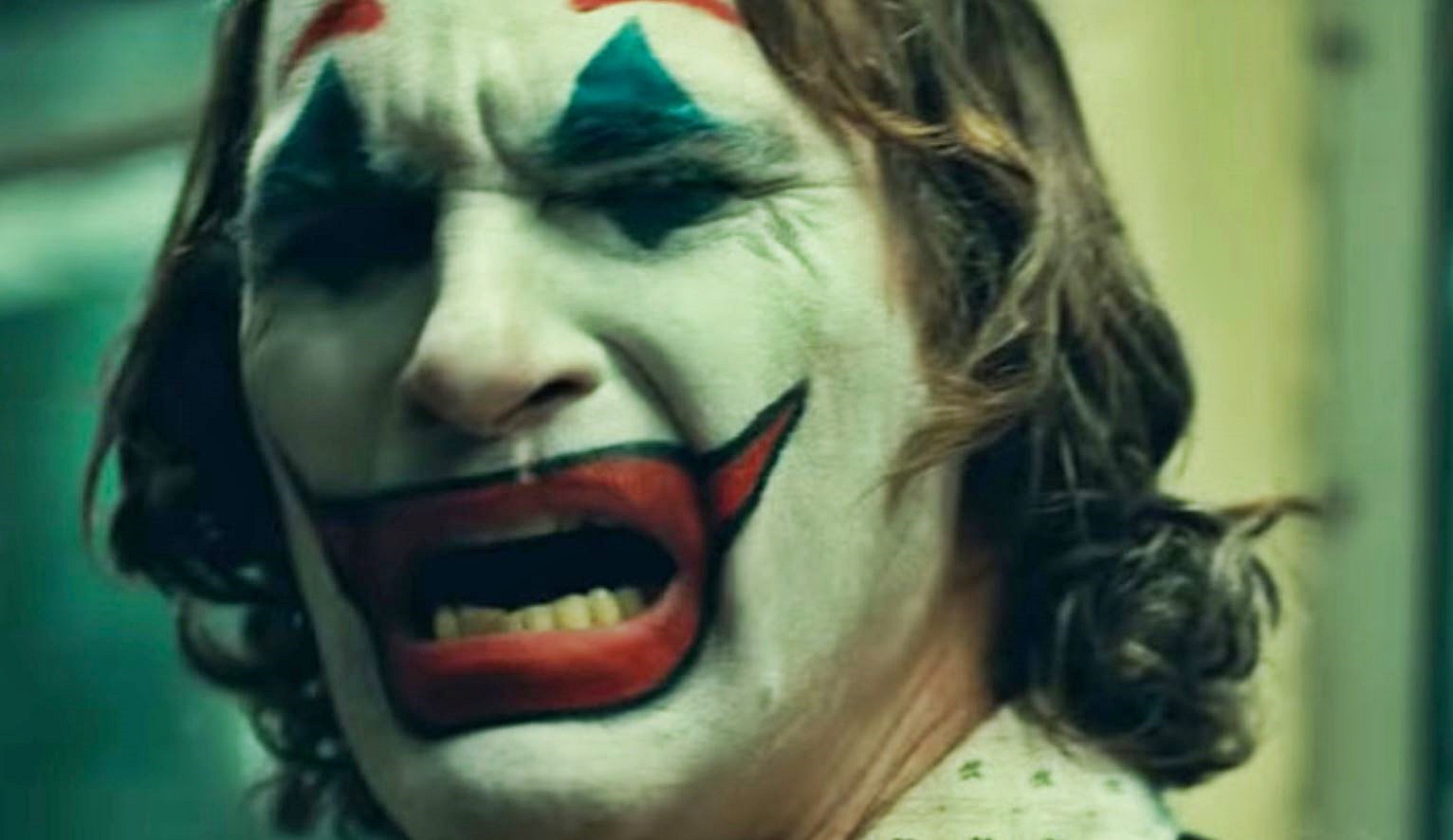
When Arthur guns down his three oppressors from the train he is forever changed. He starts to see himself not as a defenceless victim, but rather an empowered aggressor against a system that treats him with contempt. A dance afterwards in a dingy city bathroom not only represents Arthur becoming the Joker, but the entire temperament of being the Joker. Dance signifies Arthur being in his own serene world where he is immune to outside stresses.
When Arthur collects his belongings from his former workplace his behavior exemplifies that being the Joker is all about an increase in confidence and the use of violence. Upon leaving, Arthur says he “forgot to punch out”, and proceeds to destroy the device with his bare fists. This is a man who is beginning to set himself free by caring less about the society that hounds him.
By gunning down the three men while wearing his clown attire, Arthur unintentionally begins a movement of likeminded citizens dressing as clowns who also begin to push back against a society they feel has abandoned them. This is going on in the background to Arthur’s own day to day routine. While the identity of the subway killer is unknown, the murders receive significant media attention which excites Arthur, giving him the sense of acknowledgement he has been craving from the world. He is finally getting immediate feedback, unlike his empty mailbox.
The revelation he is adopted, and his mother is a delusional former patient of Arkham, is another nail in the coffin that hardens Arthur’s heart, allowing him to embrace a new outlook on life. By smothering his bedridden mother with a pillow, Arthur eradicates the source of his pain – a mother that facilitated his childhood abuse and lied throughout his adult life - the latest fabrication being Arthur as the secret son of mayoral candidate Thomas Wayne. Without a burdensome appendage to care for, Arthur truly becomes his own man while at the same time becoming that much more alone.
He begins to view his once troublesome laugh as his true self rather than an inconvenience, and after a sustained period of time without his medication, he claims to have never felt better. This leads Arthur to kill a former workmate with a pair of scissors, becoming his second kill in cold blood rather than self-defence. This is a significant transition for the character given it is the standard modus operandi for his comic book counterpart.
Through all of this Arthur still pursues his dream of being a successful stand-up comic. He does this by visiting comedy clubs, taking notes in a journal, rehearsing and eventually giving it a go in front of a live audience. His attempt bombs and he becomes the joke, leading late night host Murray Franklin, to mock his effort on national television. This is not the type of attention Arthur had been craving as it lessens his sense of power and competency. It again makes him feel worthless and abused.
Arthur accepts an invite to appear on the Murray Franklin Show, however only as an opportunity to end his life on live television. Joker has always been someone to have scant regard for his own personal safety to the point of being suicidal. From Arthur's perspective, it is the world that has gone crazy, not him, and he's happy to leave it. As Joker says in 1988's The Killing Joke, "faced with the inescapable fact that human existence is mad, random and pointless, one in eight of them crack up and go stark slavering buggo. Who can blame them? In a world as psychotic as this...any other response would be crazy."
Being ridiculed by Murray is particularly upsetting for Arthur as the late night host was someone he not only enjoyed, but respected. He was now no better than the other tormenters he encountered on the street. Because of that, Arthur chooses to kill Murray rather than himself, and by doing so, also chooses to embrace his new persona without any room for self-doubt or pity. The death of Murray is the film’s big moment as it galvanizes Gotham’s street mobs, and by admitting to the subway murders, Arthur gives the movement a leader with a face.
While his intentions with the clown persona were not political, it does become something Arthur embraces. The film depicts Arthur as an unreliable narrator who hallucinates his own reality, which is a masterful decision as it serves to cloud the entire film with a sense of suspicion as to what actually transpired. Arthur being adopted also allows him to remain anonymous with his true identity not being disclosed. JOKER serves to give Arthur all the key tenets of the comic book character while grounding them in a real world manner that feels authentic and original.
Arthur finishes the film in a facility once again undergoing psychological evaluation, with red footprints later implying he has killed the evaluator during their session. The government closed the door on his therapy sessions with budget cuts, and now Arthur closes the door on them himself. He is last seen running away in an attempt to evade capture, hinting at his comic counterparts’ penchant for escaping custody on a regular basis. It also allows us to come full circle as Arthur begins the film by saying a prior incarceration was a happier time in comparison to his city existence.
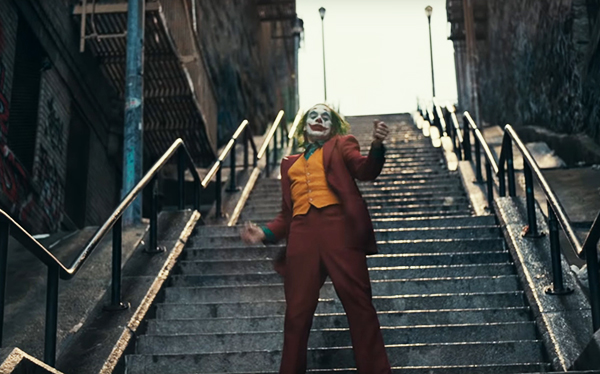
With a stripped-down movie like this there is nowhere to hide, and that’s what makes JOKER such a breath of fresh air in a world of computer generated monsters. It just needs a powerful performance from Joaquin Phoenix and a good script. This is a movie with a clear story to tell, and it sets about telling it with uncompromising focus. Phoenix appears in every scene, and with every setback or slight directed his way, his character but slowly surely becomes the man he was destined to be. It’s a fascinating descent to watch.
5/5
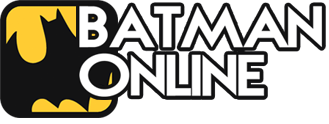
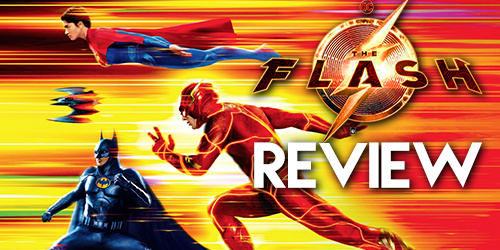
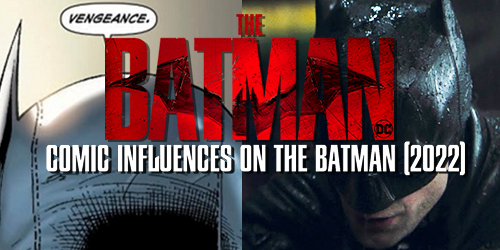
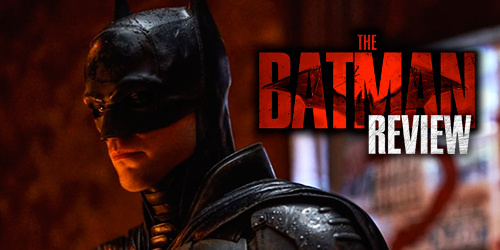

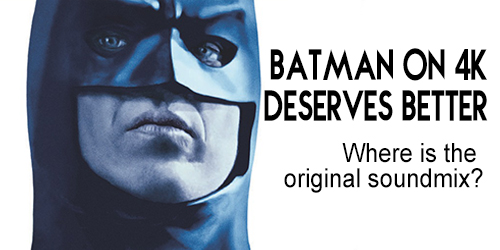
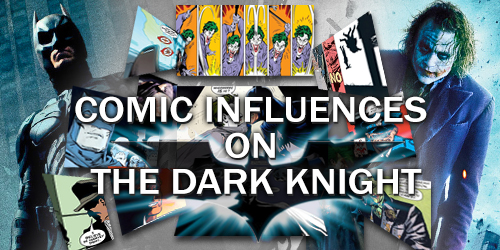
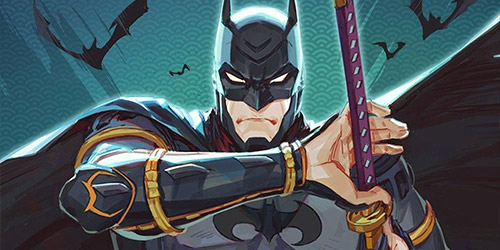
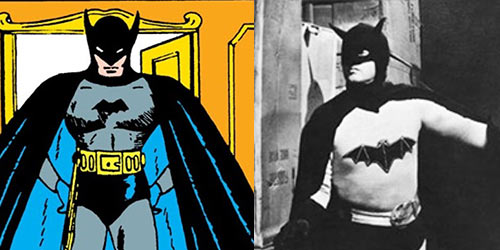
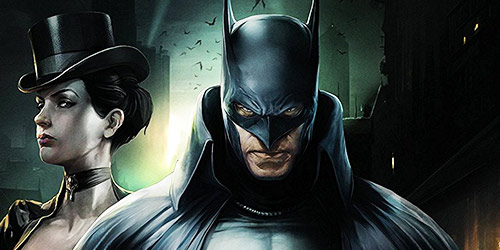
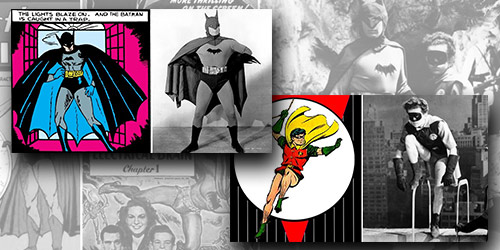
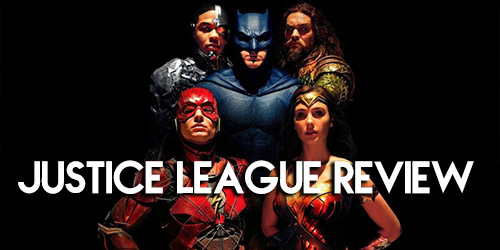

by The Joker
by Travesty
by The Joker
by The Joker
by The Joker
by Silver Nemesis
by The Dark Knight
by Silver Nemesis
by The Dark Knight
by The Dark Knight